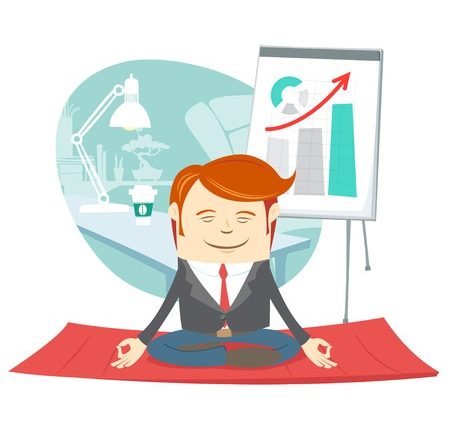Improving sleep and reducing anxiety with yoga
I have recently started attending yoga classes at the gym. This was aimed at increasing my flexibility and easing my stiff joints (the downside of cycling more). It has had a much bigger benefit: it quietens my mind. I can go in with my mind bubbling over and 101 thoughts bouncing around but I come out chilled. Yoga has been a powerful tool for reducing anxiety.
My mind is always racing. This has the benefit that people perceive me to be enthusiastic and driven. It can be quite productive when it is racing to find solutions to problems. It can also be exhausting when it is just looping through anxious thoughts. If all of my head space is filled with random thoughts I don’t have the capacity to think about bigger issues.
The other challenge with a mind in overdrive is that it hinders sleep. I’ve blogged previously on my dyspraxic sleep challenges. I occasionally use a guided meditation in the small hours to help me get to sleep and reducing anxiety. However, I’ve struggled to practice meditation beyond conquering sleep deprivation. I’ve even tried headspace and I spend most of the 10 minutes thinking about what else I could be doing – defeating the point.
I use my journal to manage all the stuff I want to get done: my workflow in the broadest sense. It is great at getting things out of my head and into a place I can structure it. My dyslexic mind is not a great repository for reminders so my journal also acts as an external memory extension. But it’s not great at capturing more nebulous harder to articulate stuff.
I’m not very good at yoga. And I think that actually helps. I have to concentrate on what I am doing, on my position and my balance. This makes me present in the moment and takes my mind off other thoughts. This adds to the proven benefits of the guided breathing that yoga teaches.
In the book Presence, Amy Cuddy explains how the body shapes the mind. People who adopt powerful body positions feel powerful. Smiling makes you happier. I find with yoga the release of physical tension in neck and shoulders releases mental tension too. I feel taller and more confident when I walk out of a yoga session.
If you are interested in the science… Yoga can reduce the impact of posttraumatic stress. Yoga can help with anxiety and depression. Yoga can reduce self-perceived stress and cortisol levels (cortisol is the stress hormone). Clearly powerful stuff in addition to increased physical mobility.
It’s not just yoga that helps with reducing anxiety. On a good day, a bike ride at a comfortable pace helps me think (though due to my posture this increased neck tension). I love scuba diving and rock climbing for their ability to force me to be present and focused on just the task at hand. Others report similar experiences with surfing (I lack the balance to even consider that). None of these though are as accessible as a yoga class.


Pingback: Getting Quality Sleep – Differently Wired